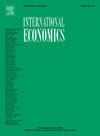戒掉对中国的依赖——贸易和福利的影响
引用次数: 0
摘要
近年来,全球对中国的进口依赖不断加深和扩大。covid - 19期间,由于过度依赖单一供应来源而导致供应链中断,以及各国严重依赖中国进口(通常被称为“中国冲击”)等事件引起了全球关注,并促使各国努力减少对中国的依赖。这一尝试始于2018年,当时美国对从中国进口的商品征收额外关税。渐渐地,与中国脱钩的过程被其他经济体所采用。尽管有这些动机,但数据显示,这些国家继续越来越依赖中国的进口。在本研究中,我们实证量化了对中国的贸易依赖,并使用贸易结构重力模型估算了减少这种依赖的相关成本。我们发现,降低对中国进口的依赖会降低各国的出口倾向。此外,一般均衡反事实模拟表明,如果美国逐步减少对中国的进口依赖,美国的福利损失将大于中国。由于美国限制中国进口的行动,世界其他地区也将遭受福利损失。本文章由计算机程序翻译,如有差异,请以英文原文为准。
Weaning Away from China – Trade and Welfare Implications
Over the past years, import dependency on China has deepened and expanded globally. Incidents such as supply chain disruptions during COVID19, due to over-dependence on a single supply source, and countries' heavy reliance on Chinese imports—often termed the “China shock”—have raised global concerns and prompted efforts to reduce dependence on China. The attempt at weaning off started in 2018 when the US imposed additional tariffs on its imports from China. Gradually, the process of decoupling from China was adopted by other economies. Despite these motivations, data show that nations continue to depend increasingly on Chinese imports. In this study, we empirically quantify trade dependence on China and estimate the costs associated with reducing such dependence using a structural gravity model of trade. We find that lowering dependence on Chinese imports reduces countries' propensity to export. Furthermore, general equilibrium counterfactual simulations show that if the US progressively reduces its import dependency on China, the welfare loss will be greater for the US than for China. The rest of the world will also suffer welfare losses as a result of US actions to restrict Chinese imports.
求助全文
通过发布文献求助,成功后即可免费获取论文全文。
去求助
来源期刊

International Economics
Economics, Econometrics and Finance-Economics, Econometrics and Finance (all)
CiteScore
6.30
自引率
0.00%
发文量
74
审稿时长
71 days
 求助内容:
求助内容: 应助结果提醒方式:
应助结果提醒方式:


